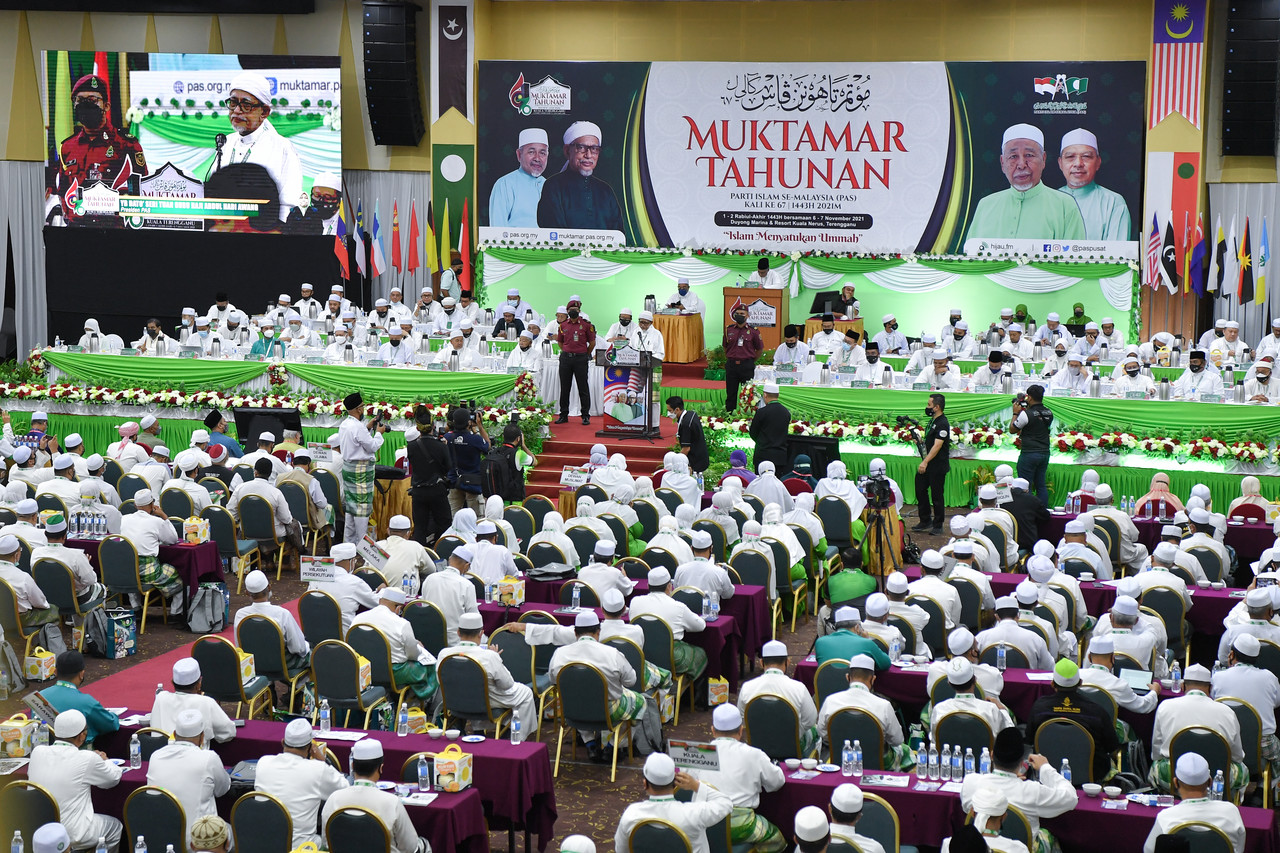
KUALA LUMPUR, Nov 24 — The PAS-led Kedah government’s move to ban 4D gaming operators in the state continues to highlight the party’s dearth of policy proposals beyond those rooted in religious objections, said critics.
One public policy expert and academics agreed that the controversial decision will fuel doubt about the party’s administrative skills despite having been in power federally for nearly two years and governing three states.
They argued that it was time for the Islamist party to demonstrate that it could contribute ideas towards the country’s progress and move beyond controversies such as the gaming ban in Kedah.
“PAS certainly has been in the limelight recently by demonstrating its position on policy matters that are reflective of its religious values and what it believes its constituents desire,” said Tricia Yeoh, chief executive of the Institute for Democracy and Economic Affairs think tank.
“In fact, PAS should also have strong beliefs on other matters such as preserving the environment, which unfortunately has not necessarily emerged as its priority. If it is, it has not been clearly communicated to the public,” she told Malay Mail.
As a part of the ruling Perikatan Nasional administration, several PAS leaders had been part of Tan Sri Muhyiddin Yassin’s administration, before continuing to serve under Prime Minister Datuk Seri Ismail Sabri Yaakob.
Among the portfolios that have passed through the party’s hands include law and parliamentary affairs, religious affairs, as well as energy, science, technology, environment and climate change.
Despite this, however, the party has yet to be credited with any significant policy or legislative idea.
Rigid theology
The source of this policy dearth could be due to the party’s political culture that tended to sideline novel ideas and give prominence to Islamic teachings under the strict “guidance” of clerical rule, according to Nik Abdul Aziz Nik Hassan, an academic who studies PAS.
Even though there were members of the professional class among the party’s ranks, the rigid theology espoused by the clerical leadership still often governed their outlook, the former university professor added.
The result is usually the suppression of debate and free flow of ideas that circumvent intellectual growth from within.
Worse, he went on to argue, is that secular-educated PAS members are often kept in the fringes and, as a consequence, the party fails to cultivate leaders with the ability to bridge Islamic teachings with the needs of modern governance.
“How to project and the meaning of Islam that is interpreted in the right way in the context of Malaysian bureaucracy, this is a skill [their leadership] do not have,” Nik Abdul Aziz said.
“Their skills, perhaps, is to speak about Islam. Even then, the teachings are only in the generic sense because they lack experience in administrative matters or that of democratic governance.”
Progressive academics have long cited such dogmatism as emblematic of the problems plaguing religious epistemology, of which PAS is just one of the manifestations.
Its root cause, according to Nik Abdul Aziz, was in the conservatives’ hold on Islam and its interpretations, which has also fueled centuries of rivalry between them and their more reformist-minded counterparts.
This tension had been visible in PAS throughout its seventy years history, which peaked six years ago when the party’s clerical leadership moved to purge the reformist-minded faction at a party poll that split the party. Leaders from the latter group eventually left to form Parti Amanah Negara.
Nik Abdul Aziz further argued that the conservatism was made worse by an incomplete religious education system that did not encourage a complete grasp of Islam.
“From a historical perspective, the system doesn’t produce students who can understand and translate Islam in real space and time... because the Islamic [knowledge] remains under the conservative umbrella, which has the tendency to focus on rituals and petty matters,” he added.
“And this problem is everywhere in the world, maybe just in different forms in Iran, Iraq or other countries.”
Party for all
Political opponents have responded to the 4D ban by criticising the move as an infringement on minority rights, but ultimately took it more as political maneuvering aimed at wooing conservative voters for the Melaka election on Saturday.
Yeoh said the move again raises questions about PAS’ ability to govern a multicultural and diverse nation, and whether it is capable of looking beyond the interest of its core voter base.
“PAS as a political party will need to truly examine how it balances its specific party priorities and the need to represent all Malaysians alike, seeing as it is part of a federal government that sets itself up to act in the interests of all citizens,” the public policy expert said.
PAS has made several attempts to rebrand itself as an Islamic outfit that is inclusive in recent years, among them, by toning its push for an Islamic state and “ratifying” its non-muslim wing with representation in the central decision-making body.
But observers said little has come since, especially under the leadership of Datuk Seri Abdul Hadi Awang, whose political outlook has shifted further to the right since his party left Pakatan Harapan.
This shift could explain why minority voters were less in favour of Perikatan Nasional, even as some of its component members are seemingly attempting to project a moderate and anti-corruption image. PAS is a member of PN, which governed shortly from 2020 to 2021.
Still, PAS will always remain significant to the country’s “moral constituents”, suggested Kartini Aboo Thalid, an analyst with Universiti Kebangsaan, who felt the party’s ability to withstand time and remain appealing to younger and more secular educated voters would help it fill some of the much-needed skills void.
“PAS may be incompetent in policy-making, lack skills for administration. Still, many Muslim professionals are joining PAS over the years, and we can see changes are taking place within PAS committees,” she said. - malaymail


No comments:
Post a Comment
Note: Only a member of this blog may post a comment.